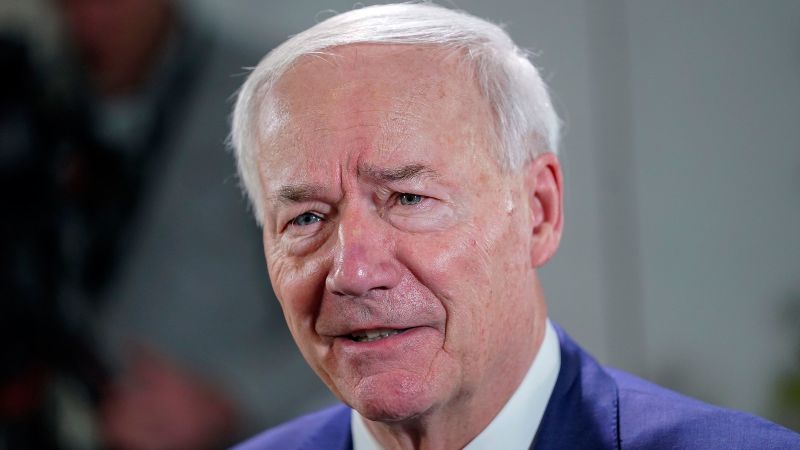Former Arkansas Gov. Asa Hutchinson announced Tuesday he’s ending his presidential campaign following a dismal showing in Monday night’s Iowa caucuses, which were dominated by former President Donald Trump.
Hutchinson finished a distant fifth, capturing only 191 votes, according to race results.
Since launching his campaign in April, the 73-year-old struggled to gain traction in a crowded Republican field that also included several younger current and former governors who entered the race with larger national followings.
Hutchinson was one of the few GOP candidates openly critical of Trump and had called on him to drop out of the race amid his many legal troubles. His failure to make a dent in the contest underscored the fundamental changes in a Republican base that might have, a decade earlier, considered Hutchinson among its most conservative options. He also argued that the former president – who faces 91 felony counts across four criminal cases – could be found guilty on a criminal offense during the GOP primaries, potentially throwing the party into chaos.
But polling has shown that many of those same Republican voters appear to have little appetite for a candidate so strongly opposed to the former president, who retains heavy support among the party base and could win his third straight presidential nomination this year. A staunch conservative, Hutchinson was booed and jeered when he spoke at an event last summer hosted by the pro-Trump group Turning Point USA.
“My message of being a principled Republican with experience and telling the truth about the current front-runner did not sell in Iowa. I stand by the campaign I ran,” Hutchinson said in a statement Tuesday.
Before the turn of the year, it was clear that Hutchinson had pinned his hopes to a strong performance in Iowa, his campaign appealing for support from the early state’s conservative evangelical Christian voters. If they had broken his way, Hutchinson felt he would have enough momentum to be competitive in the Southern states that vote on Super Tuesday, in March, including his home state of Arkansas.
In August, Hutchinson was a late qualifier for the first Republican presidential debate in Milwaukee. But he struggled to stand out onstage as higher-profile rivals dominated the night’s exchanges. He later fell short of making the polling and donor thresholds to qualify for later debates.
And despite a relatively early start to his candidacy, Hutchinson did not rake in enough donations to rival his competitors’ campaigns, nor did he secure high-profile endorsements.
Hutchinson entered the GOP primary boasting a decadeslong political resume. President Ronald Reagan tapped him to be the US attorney for the Western District of Arkansas in 1982, making him the youngest federal prosecutor at the time at 31. He served in that role until 1985, gaining prominence for his prosecution of a dangerous White supremacist group when he donned a bulletproof vest to help the FBI end a standoff with the group.
After losing bids for US Senate in 1986 and for Arkansas attorney general in 1990, Hutchison was elected to the US House of Representatives in 1996 from the state’s 3rd Congressional District. He succeeded his brother, Tim, who was elected to the US Senate.
In the House, Hutchinson served as one of the GOP managers for the 1999 impeachment trial of fellow Arkansan Bill Clinton, making the case that the Democratic president had committed perjury and obstruction of justice. Clinton was ultimately acquitted by the Senate on both articles of impeachment.
Hutchinson resigned from Congress in 2001 to serve as George W. Bush’s head of the Drug Enforcement Administration. In 2003, he began a three-year stint in the Department of Homeland Security, serving as undersecretary for border and transportation secretary.
Hutchinson lost a bid for Arkansas governor in 2006. Following the 2012 shooting massacre at Sandy Hook Elementary School in Newtown, Connecticut, he was appointed by the National Rifle Association to investigate school safety and how to improve it as part of the gun lobby’s school safety initiative. In 2014, he won his first of two terms as Arkansas governor as the state solidified its move to the right.
This story has been updated with reaction and additional background information.
Read the full article here



